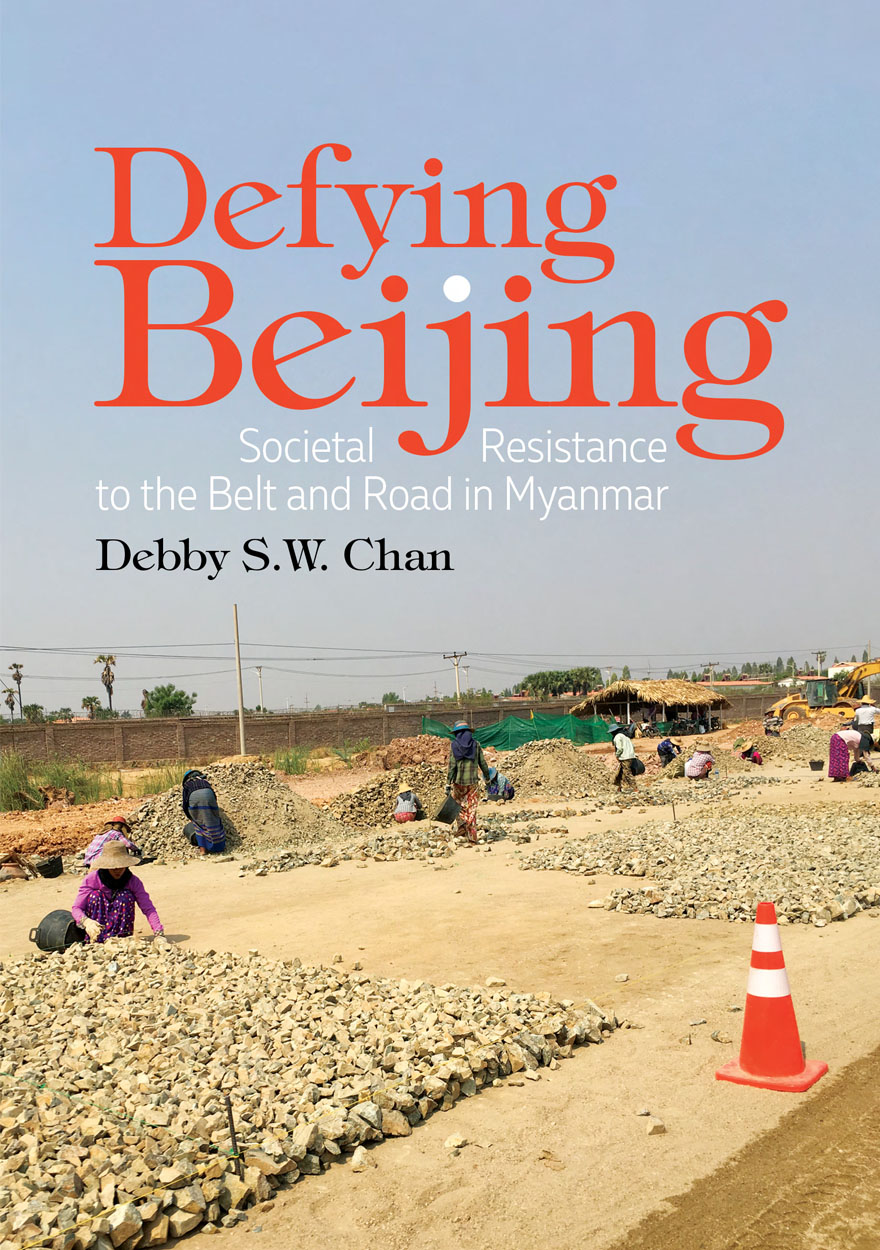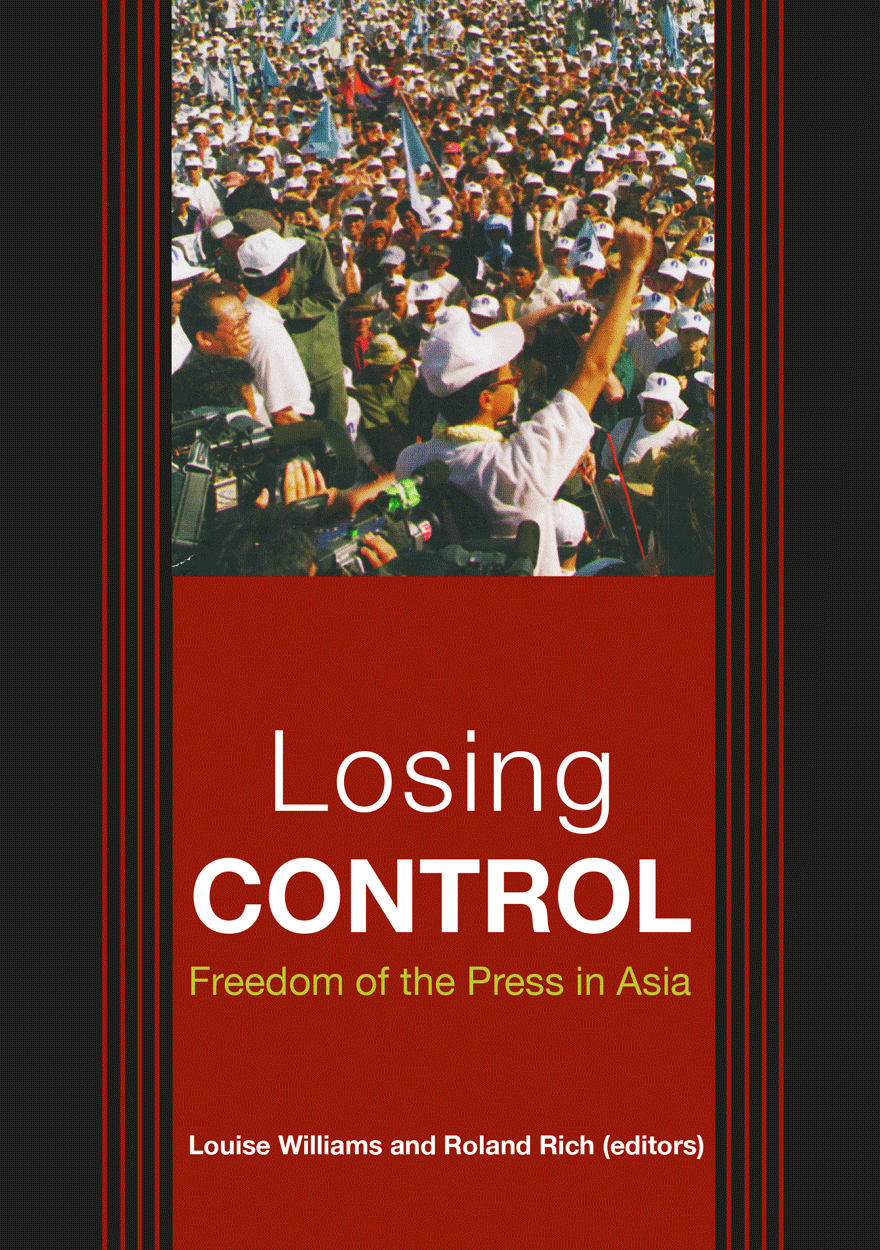Search titles
Displaying results 1 to 10 of 15.

Defying Beijing »
Societal Resistance to the Belt and Road in Myanmar
Authored by: Debby Chan
Publication date: June 2024
The Belt and Road Initiative (BRI) aims to construct a Sino-centric transcontinental infrastructure network in Asia, Europe, Africa and beyond. Within this initiative, the China–Myanmar Economic Corridor (CMEC) is a vital strategic component. The shortcut to the Indian Ocean seeks to improve China’s energy security and facilitate trade. Defying Beijing: Societal Resistance to the Belt and Road in Myanmar shows how Myanmar was able to capitalise on Chinese BRI ambitions to achieve its own desired outcomes during the country’s political liberalisation in the 2010s. Belying the asymmetrical relationship between these two nations, the Myitsone hydropower dam was suspended, the Letpadaung copper mine’s contract was renegotiated, and the Kyaukphyu deep seaport project was downsized. China offered concessions to Myanmar instead of pressuring it to honour those signed agreements. Contrasting a common proposition that US-Myanmar rapprochement disrupted the BRI projects in Myanmar, Defying Beijing argues that the rise of new foreign policy actors – citizens – made project continuation costlier for Naypyidaw in the course of political liberalisation in the 2010s. Naypyidaw was pressured to renegotiate terms with Beijing in the wake of social outcry in the country. Defying Beijing advances our understanding of Chinese–Myanmar BRI relations and demonstrates how citizens can change the course of events of BRI cooperation despite oppressive political environments and an imbalanced bargaining structure. In post-coup Myanmar, Naypyidaw’s policy options were not conditioned by public opinion or protests; nonetheless, armed resistance has posed new domestic constraints in the CMEC’s implementation. Clearly, bilateral economic agreements without citizens’ endorsement are fraught with legitimacy problems and instabilities.

After the Coup »
Myanmar’s Political and Humanitarian Crises
Edited by: Anthony Ware, Monique Skidmore
Publication date: December 2023
The coup in Myanmar on 1 February 2021 abruptly reversed a decade-long flirtation with economic and political freedoms. The country has since descended into civil war, the people have been plunged back into conflict and poverty, and the state is again characterised by fragility and human insecurity. As the Myanmar people oppose the regime and fight for their rights, the international community must find ways to act in solidarity. There is an urgent need for new policy settings and for practical engagement with local partners and recipient groups.
The contributors to After the Coup offer timely insights into ways international actors can try to reduce the suffering of millions of citizens who are again being held hostage by a brutal and self-serving regime. Chapters analyse topics including coercive statecraft, international justice, Rakhine State (Rohingya) dynamics, pandemic weaponisation, higher education, non-state welfare and aid delivery, activism from exile, self-determination and power sharing in the National Unity Government’s alternative constitution, and the roles of China and the Association of Southeast Asian Nations.

Interpreting Myanmar »
A Decade of Analysis
Authored by: Andrew Selth
Publication date: December 2020
Since the abortive 1988 pro-democracy uprising, Myanmar (formerly Burma) has attracted increased attention from a wide range of observers. Yet, despite all the statements, publications and documentary films made about the country over the past 32 years, it is still little known and poorly understood. It remains the subject of many myths, mysteries and misconceptions. Between 2008 and 2019, Andrew Selth clarified and explained contemporary developments in Myanmar on the Lowy Institute’s internationally acclaimed blog, The Interpreter. This collection of his 97 articles provides a fascinating and informative record of that critical period, and helps to explain many issues that remain relevant today.

Civil Society and Transitional Justice in Asia and the Pacific »
Publication date: November 2019
Over the last two decades, civil society has helped catalyse responses to the legacies of violent conflicts and oppressive political regimes in Asia and the Pacific. Civil society has advocated for the establishment of criminal trials and truth commissions, monitored their operations and pushed for take-up of their recommendations. It has also initiated community-based transitional justice responses. Yet, there has been little in-depth examination of the breadth and diversity of these roles. This book addresses this gap by analysing the heterogeneity of civil society transitional justice activity in Asia and the Pacific.
Based upon empirically grounded case studies of Timor-Leste, Indonesia, Cambodia, Myanmar, Bougainville, Solomon Islands and Fiji, this book illustrates that civil society actors can have different – and sometimes competing – priorities, resources and approaches to transitional justice. Their work is also underpinned by diverse understandings of ‘justice’. By reflecting on the richness of this activity, this book advances contemporary debates about transitional justice and civil society. It will also be a valuable resource for scholars and practitioners working on Asia and the Pacific.

East Asia Forum Quarterly: Volume 11, Number 1, 2019 »
Publication date: March 2019
This issue of East Asia Forum Quarterly touches on key economic and social questions that affect gender equality in Southeast Asia and East Asia, delving beneath the aggregates and measurement challenges. Strengthening the evidence base is critical to building the policy toolkit and shaping public investments that ensure no woman or man is left behind.
East Asia Forum Quarterly grew out of East Asia Forum (EAF) online, which has developed a reputation for providing a platform for the best in Asian analysis, research and policy comment on the Asia Pacific region in world affairs. EAFQ aims to provide a further window onto research in the leading research institutes in Asia and to provide expert comment on current developments within the region. The East Asia Forum Quarterly, like East Asia Forum online, is an initiative of the East Asia Forum (EAF) and its host organisation, the East Asian Bureau of Economic Research (EABER) in the Crawford School of Economics and Government in the College of Asia & the Pacific at The Australian National University.
Download for free
Not available for purchase

East Asia Forum Quarterly: Volume 7, Number 1, 2015 »
Publication date: April 2015
East Asia Forum Quarterly grew out of East Asia Forum (EAF) online, which has developed a reputation for providing a platform for the best in Asian analysis, research and policy comment on the Asia Pacific region in world affairs. EAFQ aims to provide a further window onto research in the leading research institutes in Asia and to provide expert comment on current developments within the region. The East Asia Forum Quarterly, like East Asia Forum online, is an initiative of the East Asia Forum (EAF) and its host organisation, the East Asian Bureau of Economic Research (EABER) in the Crawford School of Economics and Government in the College of Asia & the Pacific at The Australian National University.
Download for free
Not available for purchase

East Asia Forum Quarterly: Volume 6, Number 1, 2014 »
Publication date: March 2014
East Asia Forum Quarterly grew out of East Asia Forum (EAF) online, which has developed a reputation for providing a platform for the best in Asian analysis, research and policy comment on the Asia Pacific region in world affairs. EAFQ aims to provide a further window onto research in the leading research institutes in Asia and to provide expert comment on current developments within the region. The East Asia Forum Quarterly, like East Asia Forum online, is an initiative of the East Asia Forum (EAF) and its host organisation, the East Asian Bureau of Economic Research (EABER) in the Crawford School of Economics and Government in the College of Asia & the Pacific at The Australian National University.
Download for free
Not available for purchase

Losing Control »
Freedom of the Press in Asia
Edited by: Louise Williams, Roland Rich
Publication date: January 2014
‘A free press is not a luxury. A free press is at the absolute core of equitable development’ according to World Bank President James Wolfensohn. A free press is also the key to transparency and good governance and is an indispensable feature of a democracy. So how does Asia rate? In Losing Control, leading journalists analyse the state of play in all the countries of North Asia and Southeast Asia. From the herd journalism of Japan to the Stalinist system of North Korea, Losing Control provides an inside look at journalism and freedom of the press in each country. One conclusion—a combination of new technology and greater democracy is breaking the shackles that once constrained the press in Asia.
‘Brings together Asia’s best and brightest observers of the press.’
Hamish McDonald, Foreign Editor, The Sydney Morning Herald
‘A rare insiders’ view exposing the real dynamics behind social and political change in Asia.’
Evan Williams, Foreign Correspondent, ABC TV
‘A timely and necessary contribution to the debate over the quality of freedom in Asia.’
Geoffrey Barker, The Australian Financial Review

East Asia Forum Quarterly: Volume 3, Number 1, 2011 »
Publication date: April 2011
East Asia Forum Quarterly grew out of East Asia Forum (EAF) online, which has developed a reputation for providing a platform for the best in Asian analysis, research and policy comment on the Asia Pacific region in world affairs. EAFQ aims to provide a further window onto research in the leading research institutes in Asia and to provide expert comment on current developments within the region. The East Asia Forum Quarterly, like East Asia Forum online, is an initiative of the East Asia Forum (EAF) and its host organisation, the East Asian Bureau of Economic Research (EABER) in the Crawford School of Economics and Government in the College of Asia & the Pacific at The Australian National University.
Download for free
Not available for purchase

The Hmong of Australia »
Culture and Diaspora
Edited by: Nicholas Tapp, Gary Yia Lee
Publication date: November 2010
The Hmong are among Australia’s newest immigrant populations. They came as refugees from Laos after the communist revolution of 1975 ended their life there as highland shifting cultivators. The Hmong originate from southern China where many still remain, and others live in Vietnam, Thailand and Burma. Hmong refugees are now also settled in the USA, Canada, France, Germany and French Guyana. Already the beauty and richness of traditional Hmong culture, in particular their shamanism and embroidered costume, has attracted the attention of the Australian public, but little is known about these people, their background or the struggles they have faced to adjust to a new life in Australia.This interdisciplinary collection of articles deals with their music and textiles, gender and language, their social adaptation and their global diaspora. The book aims to bring knowledge of the Hmong to a wider public and contribute to the understanding of these people.



